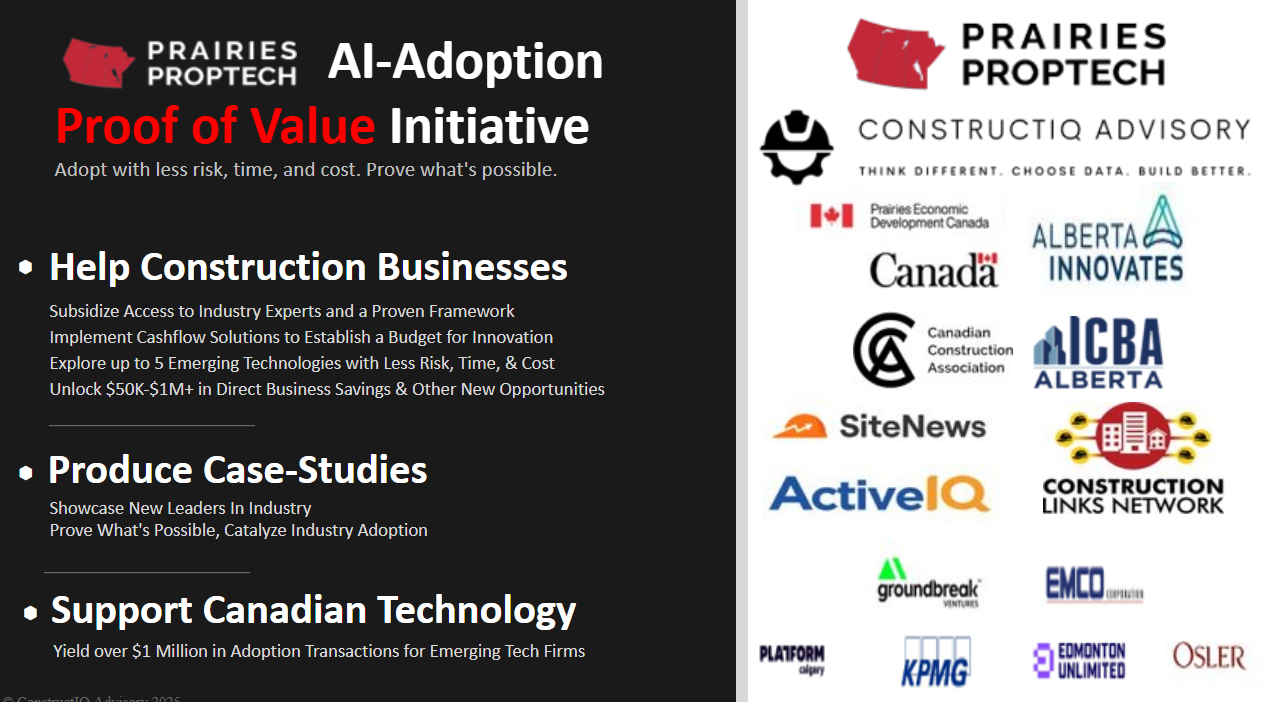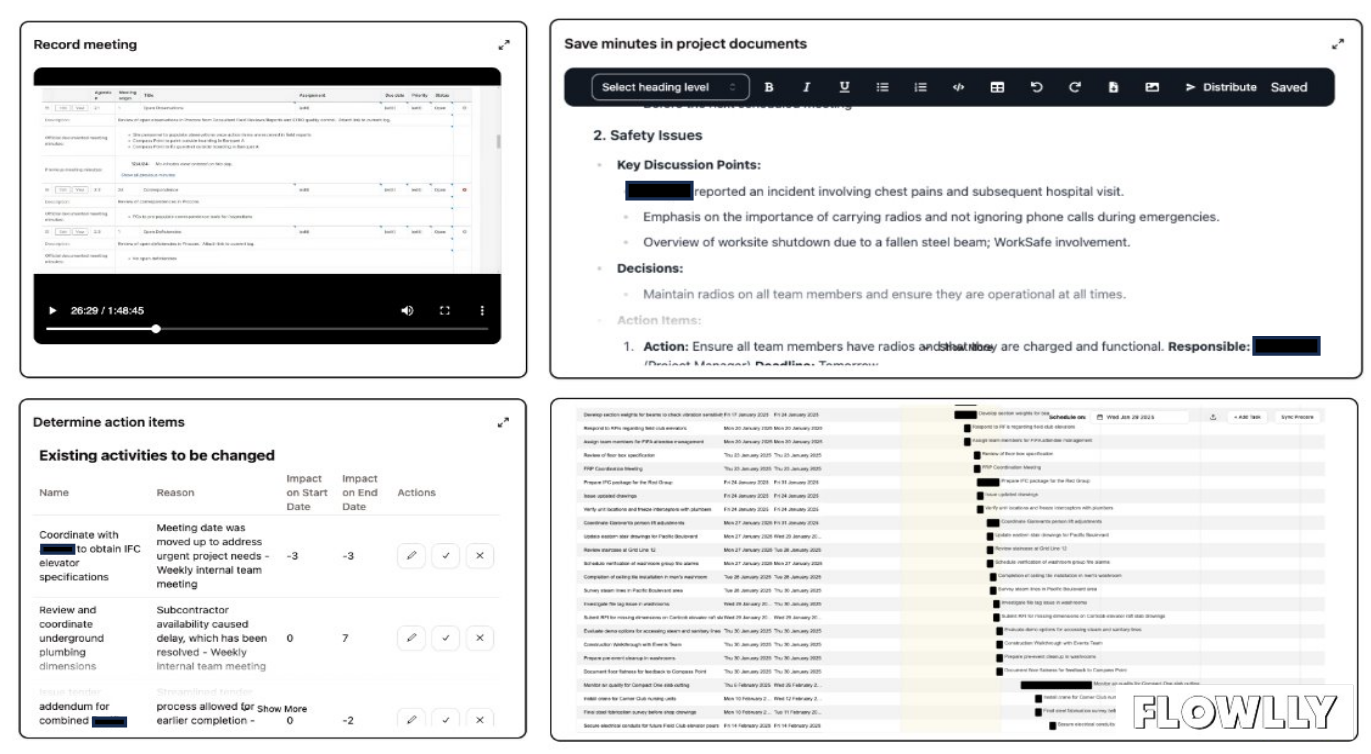BuildexBC Contech Showcase
The question on everyone's mind: Can data and AI be leveraged to do more with less? The BuildexBC Contech Showcase proved a clear ‘YES’

Proof-of-Value Case Study on AI Adoption and Its Measurable Impact in Construction
By Shawn Gray, Founder of ConstructIQ Advisory – March 9, 2025
BuildexBC just took place from Feb 26-27 in Vancouver Canada, western Canada’s largest construction conference bringing together industry leaders and the most promising technology innovators. This year, the Prairies Proptech Association, and its members, contributed to key programming as part of their AI Adoption Proof of Value Initiative, including the Contech Showcase, an AI Case Study Seminar, and an offsite networking event. These few high impact events brought together over 450 industry professionals and local innovators to learn and collaborate on practical applications of data and AI to redefine industry standards.
This year’s events focused on a pressing problem statement: Over 80% of firms cite resource challenges, so how can data and AI be leveraged to do more with less?
The Contech Showcase provided a platform for local start-ups tackling these critical issues, showcasing solutions designed to streamline processes and drive measurable improvements at the field level.
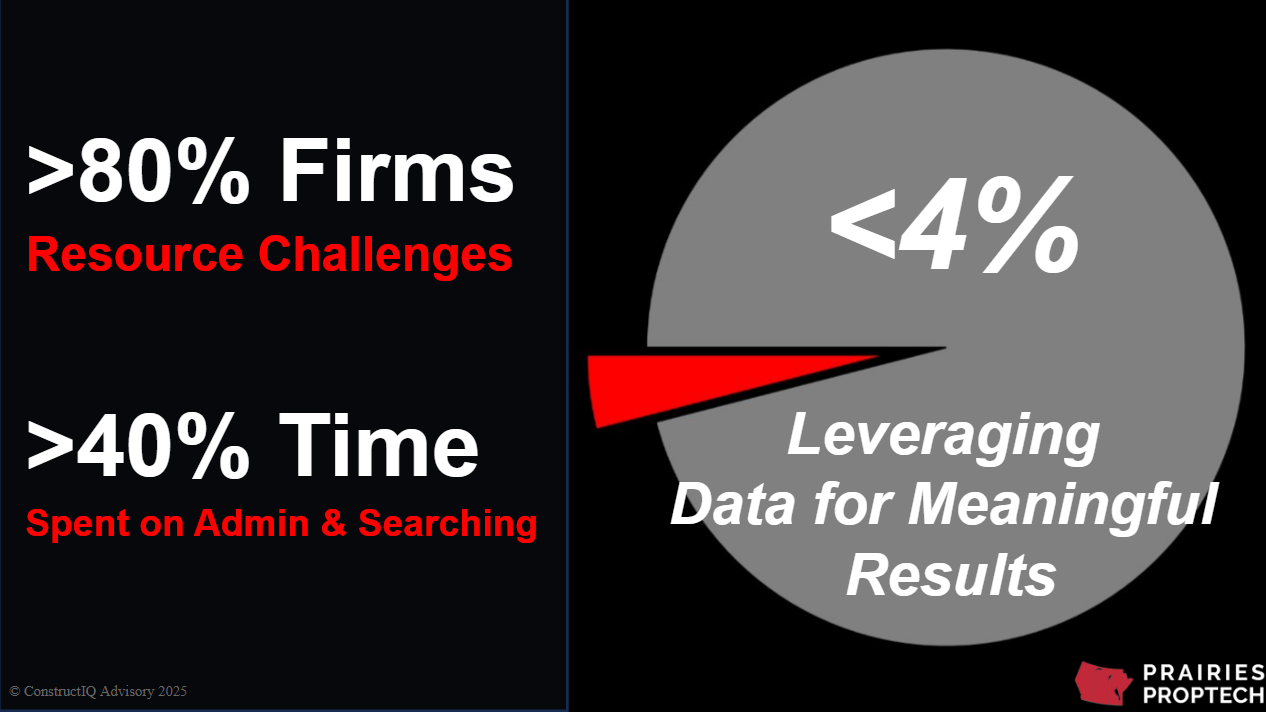
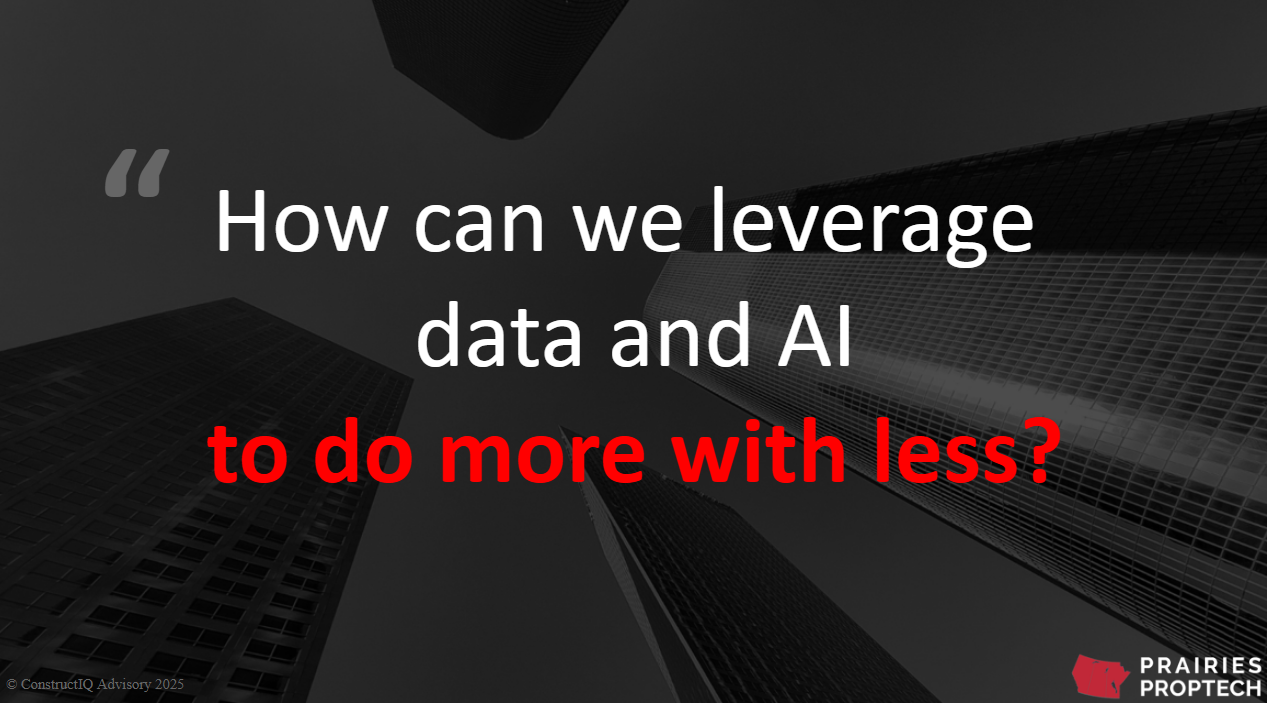
The Contenders: Data-Driven Solutions for Field-first Problems
Each presenting company brought a unique approach to debottlenecking operations, leveraging AI, automation, and real-time data insights to improve field workforce capacity and efficiency. Western Canadian based Flowlly, Nialli, and Salus each provided insights for the industry judges and audience:
Flowlly introduced AI-powered assistants designed to automate administrative tasks, reduce project delays, and integrate siloed project information. By ensuring that the right data reaches the right stakeholders at the right time, Flowlly enhances efficiency, cuts down on rework, and maximizes the value of digital transformation. Flowlly demonstrated its ability to introduce AI-agents into various operational stakeholder tasks, learn and build context from one another, take actions autonomously, and provide information to stakeholders. From pre-construction bid leveling, to real-time field stakeholder information capture, complex report production, or providing key insights to proactively mitigate risks, it was clear how transformative yet practical an AI-agent assisted construction operation could be.
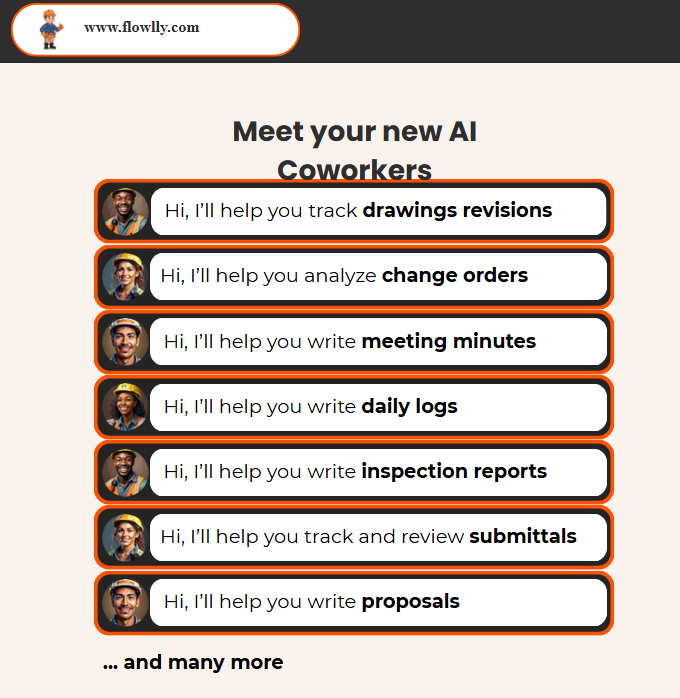
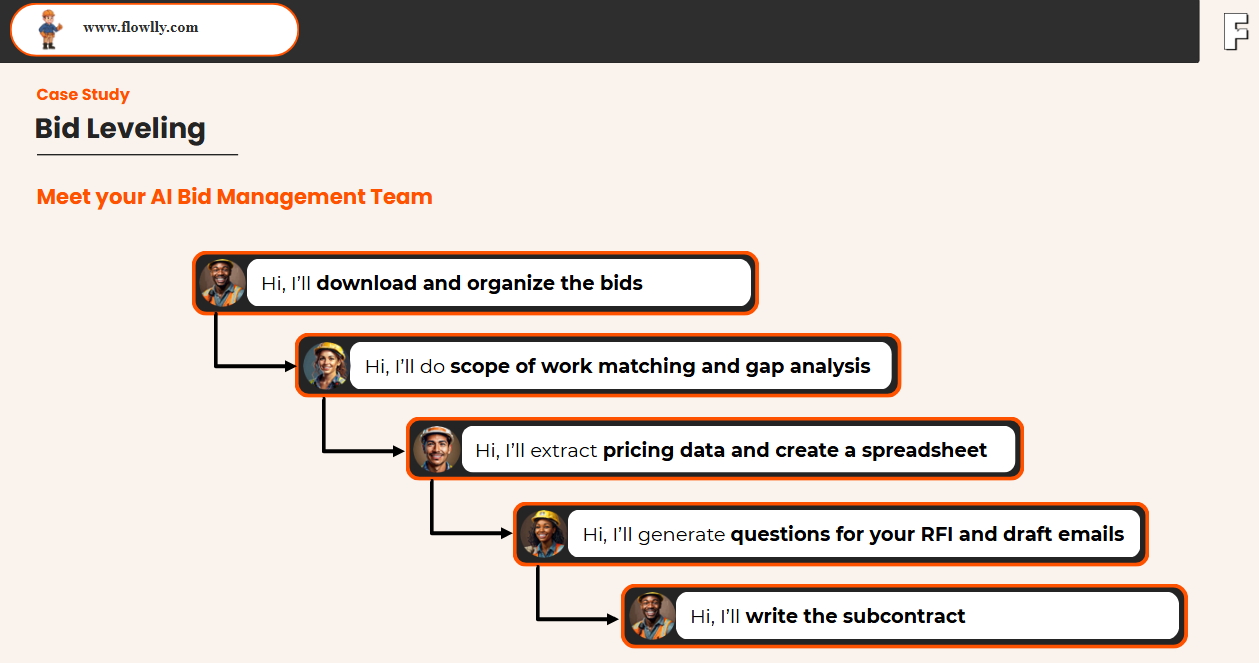
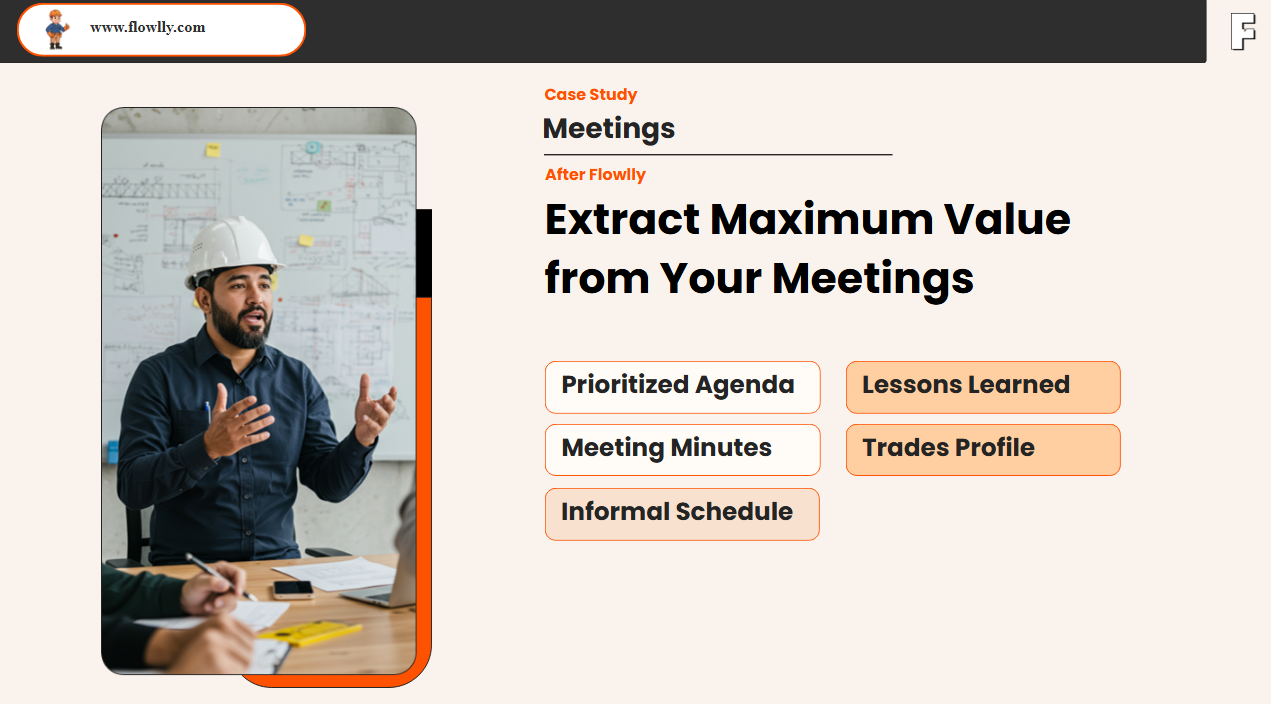
Nialli presented its digital collaboration platform, which enhances Lean Construction practices by digitizing the Last Planner System (LPS). By moving away from traditional sticky-note planning, Nialli provides teams with a more data-driven approach to managing project schedules, improving coordination, and reducing delays. More importantly, project teams are now leveraging the data contained in the digital sticky notes generated in these planning sessions to visualize workforce patterns, identify bottlenecks, and track and eliminate areas of waste that were previously hidden in disconnected or manual systems. By using real-time planning data to forecast labor needs, optimize work sequences, and improve productivity, Nialli is turning collaborative planning into a proactive decision-making tool.
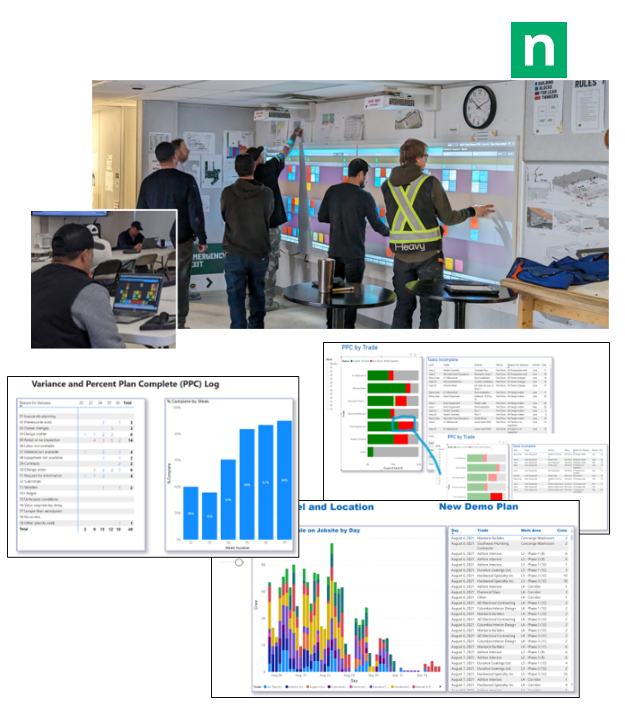
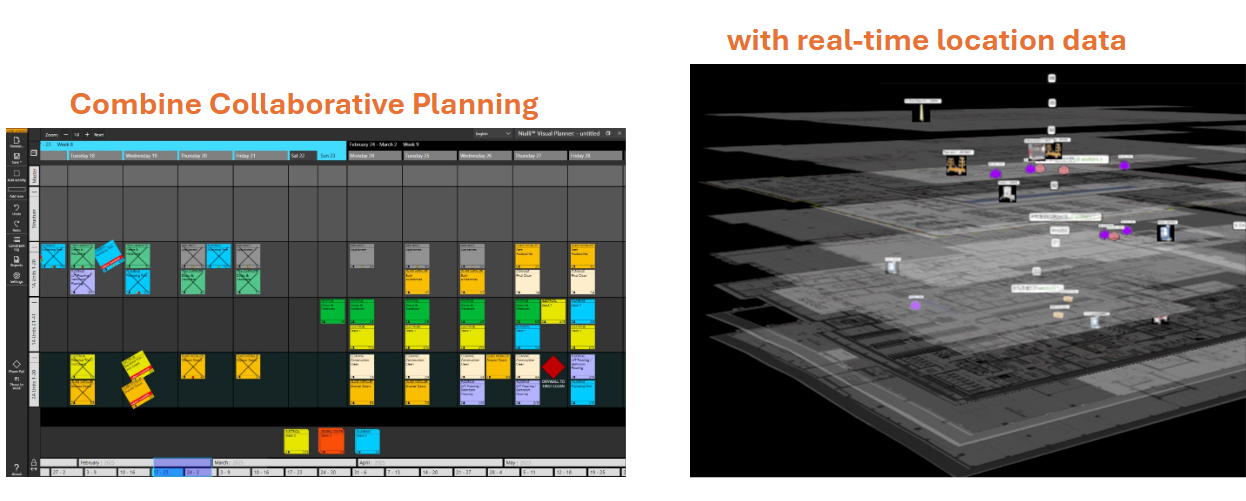
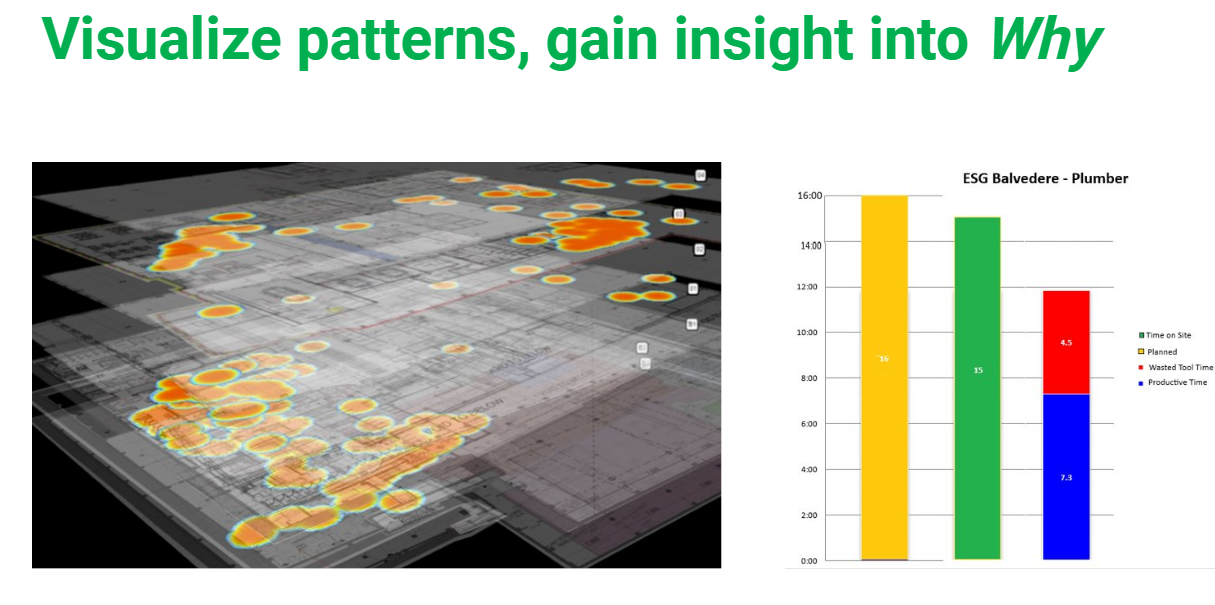
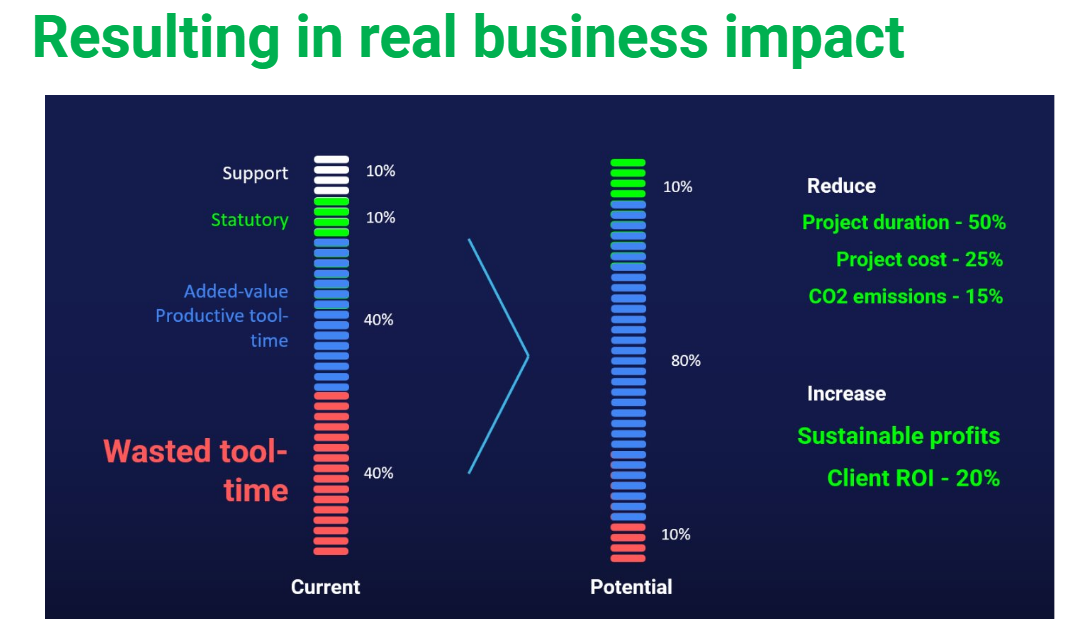
SALUS focused on safety digitization, streamlining compliance processes and providing real-time insights into jobsite conditions. Unlike traditional safety solutions that primarily serve administrators, SALUS is designed to empower field teams with actionable safety data. By digitizing safety workflows and enabling QR code-enabled access to site-specific safety protocols, inspections, and incident reports, workers on the ground can make faster, more informed safety decisions. The ability to provide instant visibility into compliance gaps and leading indicators of risk ensures that safety is not just a back-office concern but an integral part of everyday field operations.
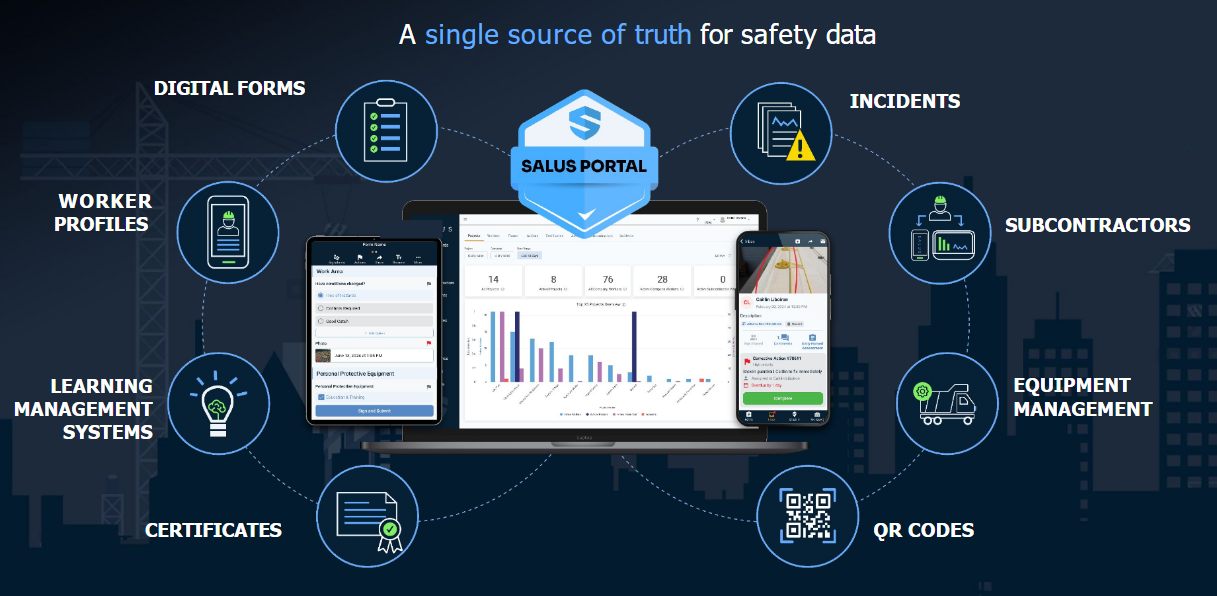
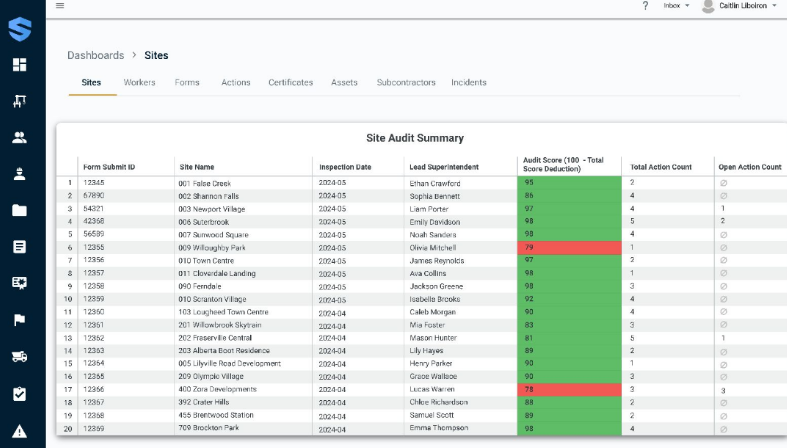
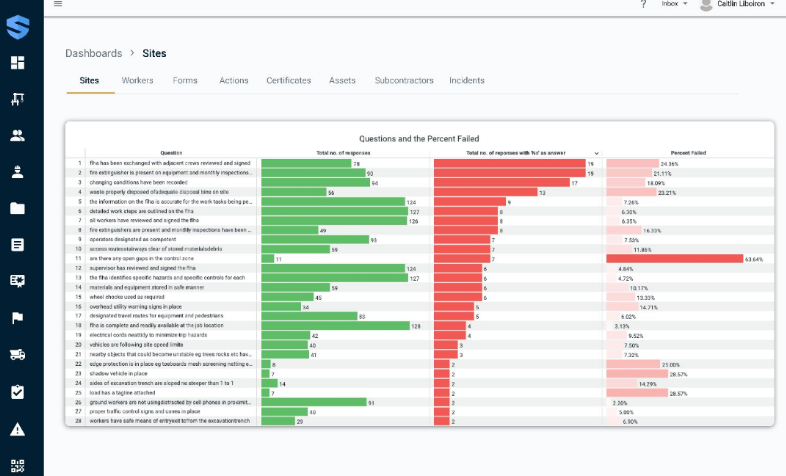
Judges: Demonstrating the Broad Impact of Construction Tech
The judging panel featured industry veterans Chris Diepdael (Axiom Builders), Christine Tschetter (RAM Engineering), and Kenny Dempsey (Kindred Construction), each bringing a unique perspective on construction innovation. Their presence and discussions throughout the event highlighted the widespread applicability of emerging construction technology, reinforcing that these solutions are not limited to a single sector or company size.
Chris Diepdael brought insight from the innovation landscape of a large-scale builder, demonstrating how AI and automation benefit both large enterprises and smaller firms alike.
Christine Tschetter’s expertise in civil engineering project services showed that efficiencies in workflows, data management, and compliance apply just as much to infrastructure work as they do to commercial construction.
Kenny Dempsey underscored how technology-driven safety and planning improvements are essential in residential, prefabrication, and mass timber projects, breaking the misconception that digital solutions are only for traditional commercial general contractors.
The audience also contributed questions and insights regarding data and security, practicality and costs, new skills or resources required to implement, factors inhibiting adoption, and field level appreciation for these types of solutions offering obvious value.
Flowlly Takes the Crown
While each contestant offered insights and evidence-based impact on improving field productivity, Flowlly emerged as both the Judges’ Favorite and the Audience Favorite, solidifying its position as a game-changer in AI-driven construction automation.
Why did Flowlly win? The judges and audience alike recognized the immediate, tangible impact of AI-driven automation on project workflows. Over 40% key field personnel time spent on administrative tasks, data entry, and searching for information—a staggering inefficiency that Flowlly directly addresses. By introducing AI co-workers in the right applications, evidence was clear that field stakeholders who leveraged this solution unlocked time to take on more work, and enabled them to improve coordination, supervision, mentoring, and mitigating delays. Its applications were simple to implement, added value to many stakeholders, were adaptable to various workflows, regardless of industry vertical or project type the organization was delivering.
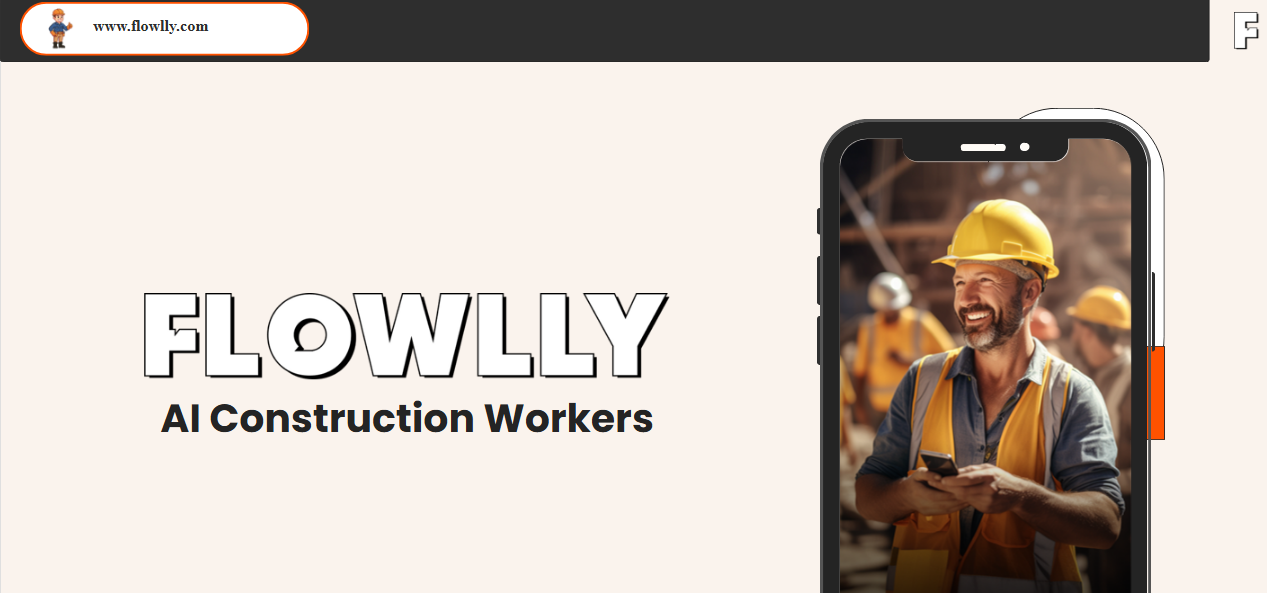
The Takeaway: Yes, Data and AI can Help Firms do More with Less. But, Collaboration is Key
Each contestant at the Contech Showcase reinforced a critical theme: unlocking the power of field-level data is key to solving the industry’s biggest challenges. Whether it’s optimizing project planning, improving safety compliance, or automating routine tasks, data-driven solutions designed for field-stakeholders offer the best path forward for increasing efficiency, reducing costs, and mitigating risk.
The judges’ insights made it evident that construction technology is not exclusive to a single type of project or firm—it is a necessity for all facets of the industry. Their conversation debunked outdated assumptions and reinforced that AI, automation, and data-driven solutions are not just “nice-to-have” tools but essential drivers of productivity, profitability, and risk mitigation across the board. Each saw, that unlike previous decades of various back-office oriented platform solutions, leading solutions being developed today are practical and resonate directly with the challenges being experienced by the front lines.
The biggest advantage for businesses today? It’s not the tech; it's the fact that these solution providers exist within the local ecosystem, and collaboration is the key. Thanks to groups like the Prairies Proptech Association, and opportunities like the AI Adoption Proof of Value Initiative, firms can collaborate with confidence and see real-world results without the typical barriers of cost and uncertainty.
For construction firms looking to stay competitive, the question is no longer whether to adopt AI and automation—but how quickly they can implement these technologies to maximize impact. The BuildexBC Contech Showcase proved that the future of construction is not just about building structures—it’s about building smarter, data-driven workflows that drive real results, with collaboration between industry and the local technology community as key.
Where to Go from Here?
Nialli, Salus, Flowlly, and others, can make a real business impact; however, results require action. The AI Adoption Proof of Value Initiative, powered by the Prairies Proptech Association, is the only initiative today offering real-estate and construction firms a de-risked approach towards emerging technology adoption.
Participating firms are already moving beyond AI discussions and exploring emerging technologies in a practical setting, unlocking significant business savings, saving on technology costs, and showcasing their businesses as the next leaders in industry.
Enrollment in the Q2 cohort is now open, with limited spots available, so submit your Expression of Interest today!
More information can be found at: www.prairiesproptech.com or www.constructiqadvisory.ca
